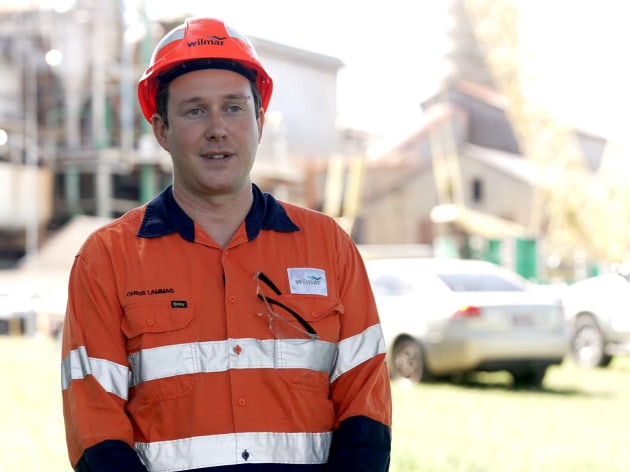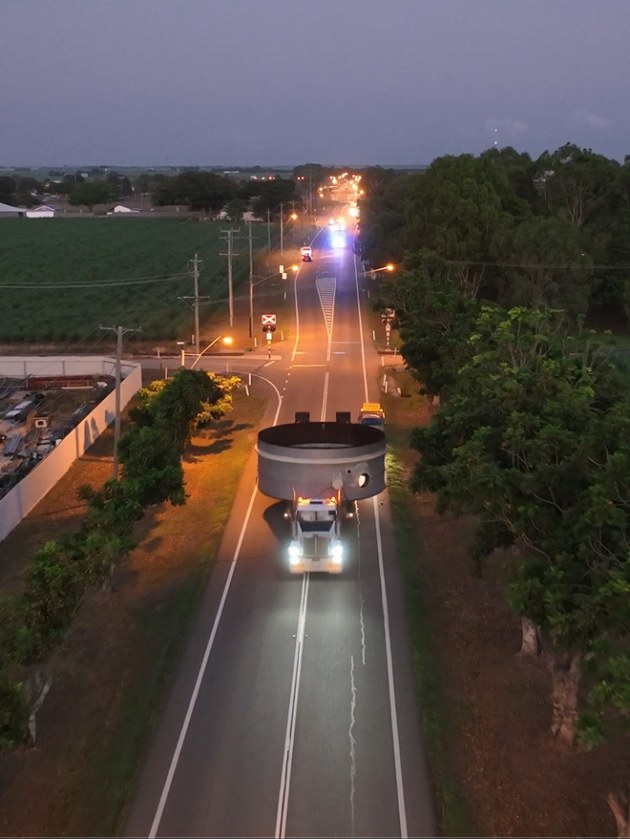The end is in sight for a $25 million capital replacement program at Wilmar Sugar and Renewables’ Kalamia Mill, with the last of four new evaporators currently being installed at the factory ahead of the upcoming production season.
The final stage in a three-year program, the first new evaporator was installed at the Burdekin sugar factory in 2022, followed by more in 2023.
Wilmar senior project engineer Chris Lammas said the four new vessels replaced older ones that had reached end of life.

“This work represents an almost total renewal of the evaporator station at Wilmar’s Kalamia Mill, which should deliver improvements to rate and reliability,” Lammas said.
Evaporators are a critical early stage in the sugar manufacturing process, where water is evaporated from the sugarcane juice and concentrated into a syrup, before the sugar crystals are made.
Lammas started working on the evaporator replacement program in 2020, and said he was looking forward to seeing the finish line.
“I’ve lived and breathed this project for four years. It’s the biggest and most expensive capital program I’ve worked on. It’s involved a lot of people with a multitude of skills from across the business, as well as external contractors,” said Lammas.
All of the new vessels were engineered, fabricated and installed in-house.

The major components were fabricated at Wilmar’s Burdekin Centralised Workshop, located at Pioneer Mill in Brandon, and transported about 16km by road to Kalamia Mill in Ayr. The bottom cone and lower body were moved to site in December last year.
Wilmar manager, projects David Innes said the capital replacement program had provided an opportunity to
standardise and improve Kalamia Mill’s evaporator station.
“The existing evaporators were of different sizes and capacities. The new ones are all seven metres in diameter and have a heating capacity of 3200sqm. This creates greater efficiencies in design and construction,” Innes said.
The fabrication and transport of the last vessel took more than 10 000 labour-hours.
“Approximately 100 tonnes of steel went into the fabrication of this evaporator and a further 33 tonnes of stainless steel tubing is installed on-site,” Innes said.
The new evaporators are part of a much larger program to replace end-of-life vessels across Wilmar Sugar and Renewables’ eight mills, with more than $200 million being invested in capital and maintenance work across Wilmar’s sugar factories and cane rail assets this year.






